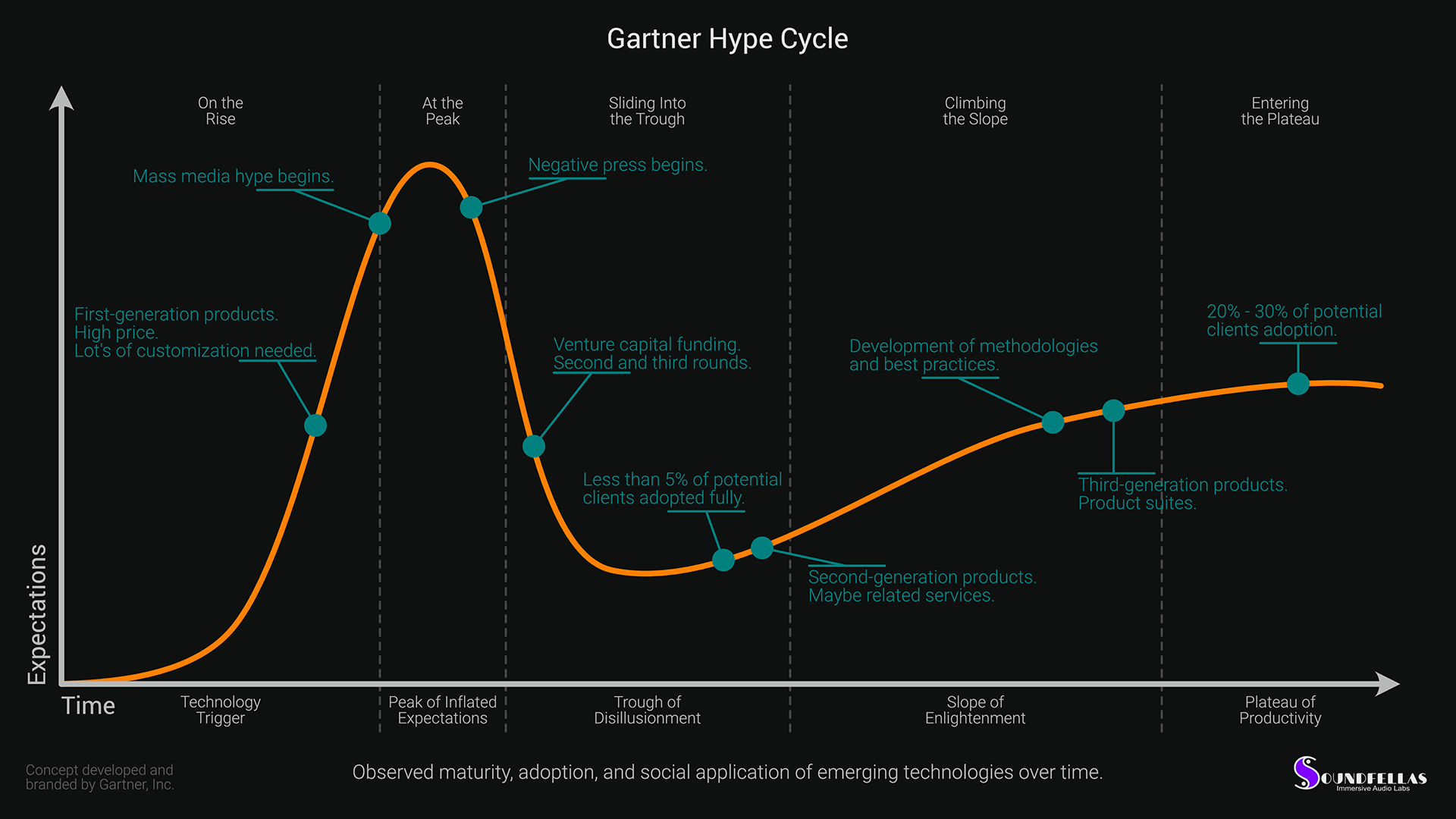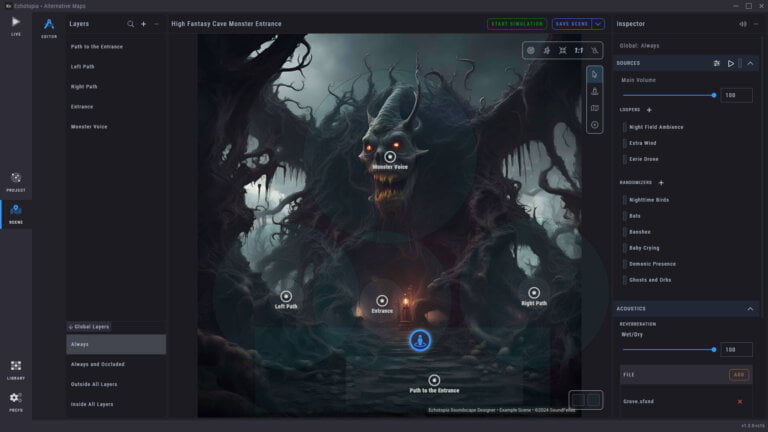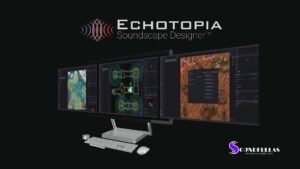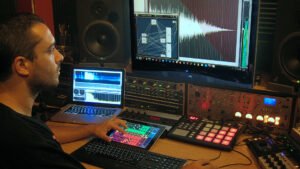I discovered my love for creative audio at a very early age, almost after I learned to walk I was cutting magnetic tapes with recordings of my sister's voice and then sticking them together backward to create funny noises. Later on, I became a geek with computers and the fusion of computer audio was a permanent thing in my life ever since.
I believe that the move that transformed a beloved hobby into a career was my decision to charge for my services when I was around 16 years old. Of course, back then I was collaborating with friends and we created videogames and music productions as a hobby. I never charged them money as this was both illegal and something that I couldn't do as they didn't have any to start with. What I was doing was exchanging services, for example, I will produce your album but you will tattoo my guitar, or I will produce looping music for your videogame and you will program a tool for me.
That didn't only give me a sense of value for my work but also created a very professional image of me as a professional in my network. I noticed that even my friends were taking me more seriously because of the image I was projecting. It's crazy, right?
Anyway, moving on, As I was learning how to be a professional, something by the way you will never learn at school or your creative media degree, it occurred to me that I should have a set of practices that I should hold that would protect the future of my career. Sustainability wasn't even a known word back then, we sued "future" instead, everybody was advertising a steady future.
Passing my first professional years and as I moved through the ranks I ended up being an educator and instructional designer for creative media colleges and universities, and I also held a position as a head of game studies in a college for 5 years. During my years as an educator, I had the opportunity to work with many students in the creative media sector who later went to fill job positions in various media-related industries. Through my connection with those students, I got a good idea of the fears, mistakes, and traps that the creative media industries hold for anybody that wants to have a sustainable career.
Through my experience as a professional in the creative media sector for many decades now, I thought that it would be useful to share the top 10 time-tested practices that allow me to have a sustainable career. Those are not ultimatums and you should view them as sharing of experience because that's what they are. You should combine them with your culture and personal character and of course modify them to fit your own professional ecosystem, because their value lies in the experience sharing and not the exact text.
I truly hope that you find them useful and I will be more than happy to hear your thoughts and discuss them with you on the related thread at our forums (link at the end).
Run faster than the rest
By reading books

Even if we don't like it, a professional career has the element of competition in it. We compete with each other on getting that job position, we compete with each other on getting that client. It's not all wrong, all life is some kind of competition over opportunities and against misfortunes.
In my life-long career as a creative media educator and career coach, I observed a specific behavior in most of the people that want to become professionals in one of the creative media areas. Most of those people, when they needed to learn some technique that would help them achieve a result, what they did was to search for a video tutorial for exactly that result.
For example, if a student of electronic music production wanted to create a psytrance kick drum sound, she would search for a video using the search query "how to make psytrance kick drum". Most of them would go directly to YouTube, narrowing without knowing their search results even more.
There is a fundamental mistake in that methodology. First of all most of them didn't know if that kind of sound fits their own composition, or if that kind of sound conveys their artistic intent to the listener.
They achieved knowing the "how", but they failed completely in knowing the "why".
Even in the sector of music production, most of the educational programs available out there belong to the post-secondary technical training academic level, knowing the "why" is important.
All the "whys" can be found in the place we humans use to put our complicated knowledge. Organized and easily to random access the content in a non-linear fashion way. Books.
I'm talking about books that people passed their lives testing and gathering knowledge in order to make them. Treasures of lifelong knowledge hidden in plain sight. Books that will teach you the "whys" of what you try to achieve and will make think about the real questions, the hard questions, the questions that when you answer you will also be capable to answer why you want to make that kick sound like that, and why you shape your song that way.
Now, don't get me wrong, there's nothing bad about watching tutorials on YouTube or reading that "how-to" article that seems to simplify what you are looking for in a few rules. It would be narrow-minded and hypocritical to say that. After all, this article is the same and there is value in those knowledge nuggets as well. But you have to understand that is very different to follow a recipe book versus knowing food chemistry. You need both, but the latter is what you need more.
In a sector where most people base their learning on lazy searches on YouTube, if you start reading the right books, you will tap into a resource so powerful that in the metaphor of running to compete, you would seem to the rest like you suddenly got the magic potion from Getafix.
See the future
By following the scientific and engineering peer-reviewed publications

This is one of the easiest practices to explain. We only have to understand what is the most common path that knowledge uses to drip into materialization, meaning how new products are created.
First of all, we have to acquire some kind of new understanding or angle to interpret the knowledge we already have. This is usually done by innovating, meaning finding new combinations of different things to create something new, or by inventing something new altogether. Progress also works another way, by taking the way of doing things and making it better using new techniques, processes, materials, controls, etc.
To do all of the above, usually, the scientific method is involved. It's the only way to move on the right path in progress and it's also an art form of individual and collective thinking. In fact, it's the most creative process we have.
So, knowledge is created by science and as part of making it available is published through the process of reviewing scientific publications.
After new knowledge is verified by peers it's made available through a journal or a science portal.
It usually takes some time and afterward, some technologist or a scientist-turned-entrepreneur applies the new knowledge to a field, usually as a solution to a problem or automation that will drive production higher and lower costs. The process of developing applicable solutions from new knowledge is tedious and takes a considerable amount of time. Enough time for anybody that follows science to adapt his/her business model, practices and techniques, and product or services pricing.
One of the most important reasons someone has to keep one eye on the cutting-edge of human knowledge is that if some kind of automation is invented that could disrupt the profession and its pricing model, everybody should get ready for that change and start thinking new ways of conducting their business.
Scientific publications are like a magic crystal ball for the active professional and usually make me seem like a fortune teller to my peers that don't follow research so closely. Don't be afraid if you fall into a paper full of mathematics or advanced physics, just read the parts you understand, search for the parts that you could easily learn, and leave the rest for another time.
I try to make it a habit to read 3-5 research papers each week, choosing subjects related to either what I'm doing at the moment or long-time favorites of mine like psychoacoustics and sound spatialization.
Don't be afraid, start looking at your magic crystal ball once in a while, and soon you will have a very different view of how your career will evolve.
Become a ninja master in your field
Practice not only makes perfect, but it also creates masters
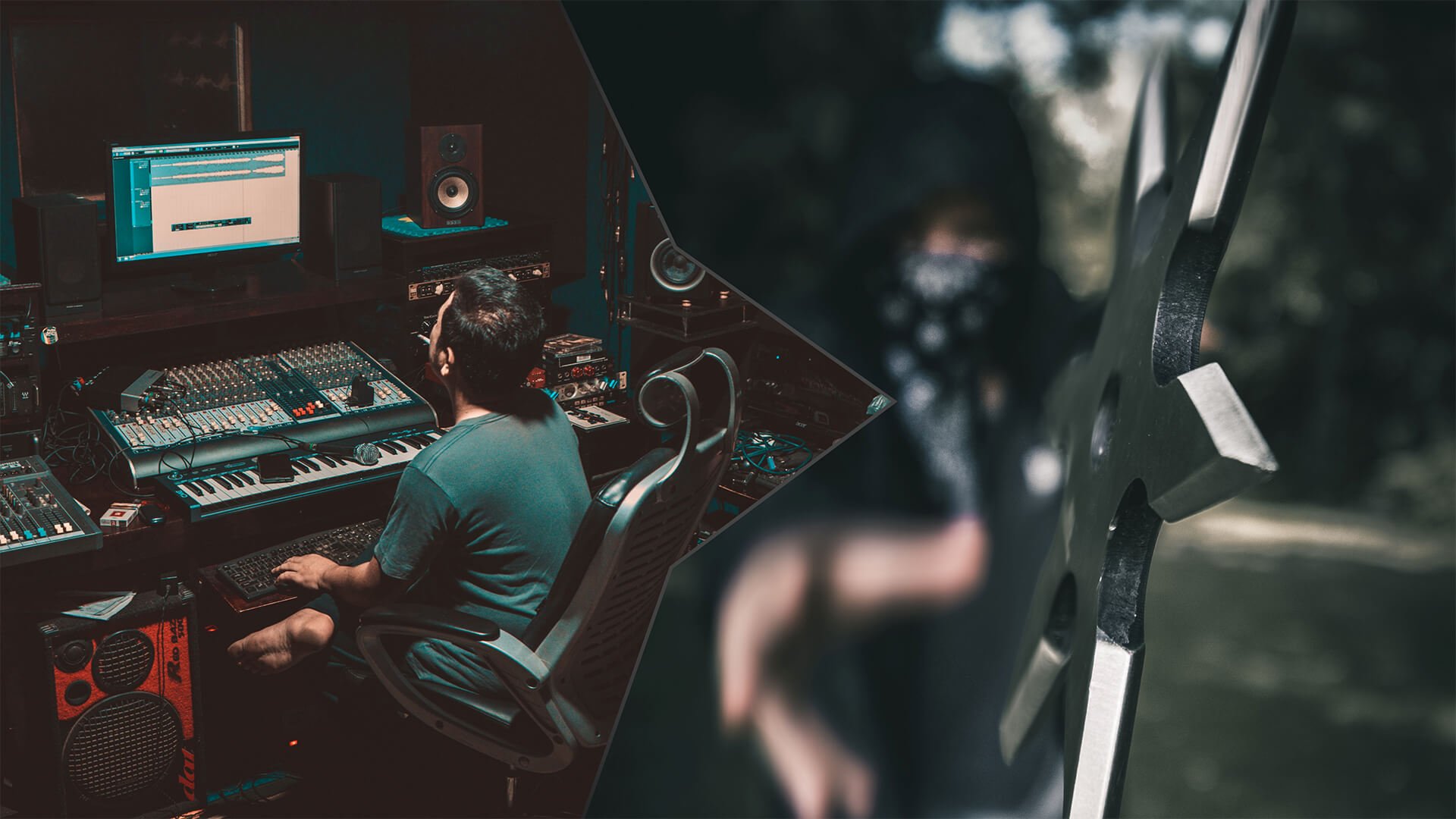
There is an old saying about skill-based learning, stating that you achieve mastery at something when you have done it correctly 10.000 times. A variation of the same saying that applies to knowledge-based learning states that you achieve mastery of knowledge when you have spent 10.000 hours learning it methodically.
There is a lot of criticism surrounding the use of a number and I'm also skeptical of over-simplifying and self-help ultimatums, but one can find truth in the methodology of repeating something to learn it well.
There are so many fields that one can specialize in the creative audio sector, not only mixing or mastering but deeper and more specific, like mastering for mobile devices or mixing acoustic jazz for domestic listening, or even more specialized, mastering heavy metal music for mobile devices or producing drums for acoustic jazz. You get the idea.
And it's not only mixing and mastering. Designing, pre-production, production, executive production, PR, management, everything goes.
Humanity evolved from every human being able to do everything to a basic level, to each human being able to do something very well, and the evolution won't stop going this way. It's the way life works anyway.
It's only natural for everybody that wants to have a successful career to be specialized in one thing. That doesn't mean that you should not learn other things or be interested in side-projects. It only means that you should have a priority and invest time to keep practicing and learning about your top talent.
Be a ninja master of something specific and soon everybody will suggest you to people who want that specific thing and are serious about their work.
Stay in control of your career
By continuously learning and following the progress of your field
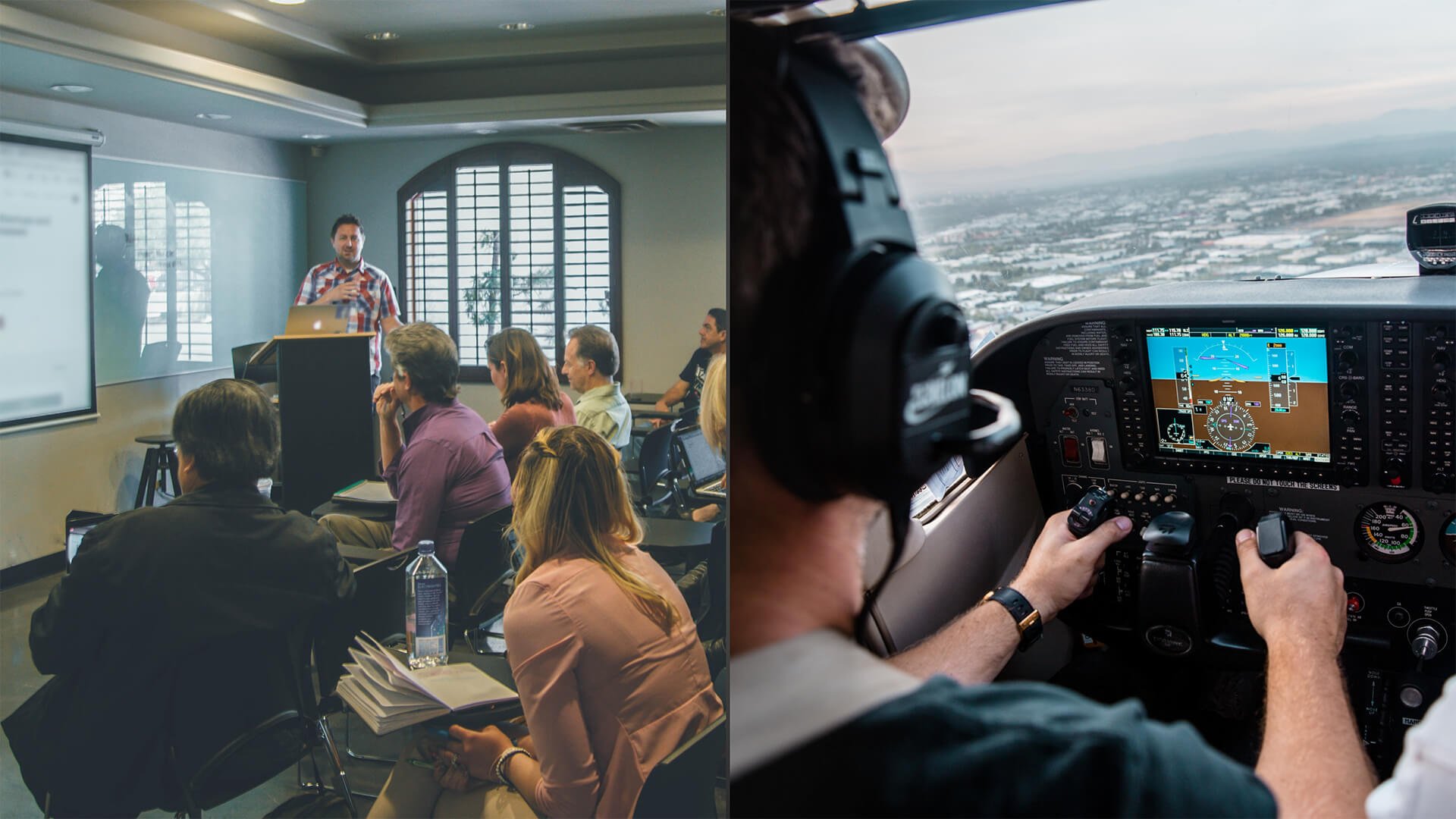
You don't only want to have a career, you need to control your career.
When I think about control I think about the pilot of an aircraft. In order to control your aircraft, you need a constant stream of information regarding weather changes, intercepting objects, changes in the ground level, your aircraft sensors, and any other information related to getting your aircraft to its destination safely.
The same thing happens with our careers. To control our careers, we need to stay informed constantly of any changes that will help us navigate the ever-changing ecosystem that affects our field.
How to do that?
Apart from following any scientific advancements which I strongly suggest above, you should attend seminars, conferences, read the news, follow groups of people that lead the field, subscribe to blogs and RSS feeds, and in general keep on learning and staying on top of information flow in your field.
By learning new things and staying on top of the information stream regarding your field you will be able to navigate your career better in an ever-changing economy.
Protect your workflow from new trends
Don't let FOMO (Fear Of Missing Out) convert you to a beta tester hindering your productivity
This is one of the biggest traps you can fall into as a professional.
The fear of missing out feeling or FOMO as abbreviated is regularly exploited by the advertising industry to make you want something new.
If you combine that kind of marketing together with the fact that in digital products and services all investor groups consider new user onboarding one of the main metrics for investing in a technology firm, you have companies that struggle to get users to buy or subscribe to their products or services so they can get bigger investments.
Now, this is not only bad, some awesome technology firms started that way and offered us great tools and services creating complete ecosystems around their business.
But, in my long career, I observed far too many amateurs or new professionals falling into that trap and instead of keeping a competitive production workflow, they turned into unpaid beta testers. Instead of reading books and engaging in public relations, they lost their sleep and lost time filling out bug report forms.
On the diagram above you can see what is called the Gartner Hype Cycle. In this diagram, you can observe the common path that a new technology trend runs over time. As you can see, when the trend is on the rise the expectations are high as that is always exploited by marketing. But after peaking you can see that less than 5% of the potential audience fully adopted the trend. This can be a tool, a plugin, an audio editor, anything that can be a tech trend. Having less than 5% adoption means that not only does a large sum of the people who tried the trend fail to use it professionally but that the trend may not perform as advertised as well.
Only after the trend is in the market long enough for the development of methodologies and best practices to be possible, and after the trend has produced its 3rd generation of products and services, it can be considered stable enough to safely enter professional production workflows.
Keep in mind that I'm not proposing that we should never try new things or invest our trust in new and exciting tools and technologies, after all, our own Echotopia project depends on user adoption as much as any other innovative audio tool. What I'm proposing is to keep new tools and services on a trial stage until you are sure they belong to your official professional workflow.
Try to keep a cautious stance on new trends, especially if they appear attractive, and promise you that will completely change the way you work. Don't be afraid to try them when you got the time to do so, but don't start your new professional projects right away using those trends. If they fail, they will fail your work and your customers. And it will appear to your customers that you failed. Nobody cares what technology or plugin you used, only the final result matters in the end.
Be the puppeteer
When your work can be done by robots it’s time to become the robot operator
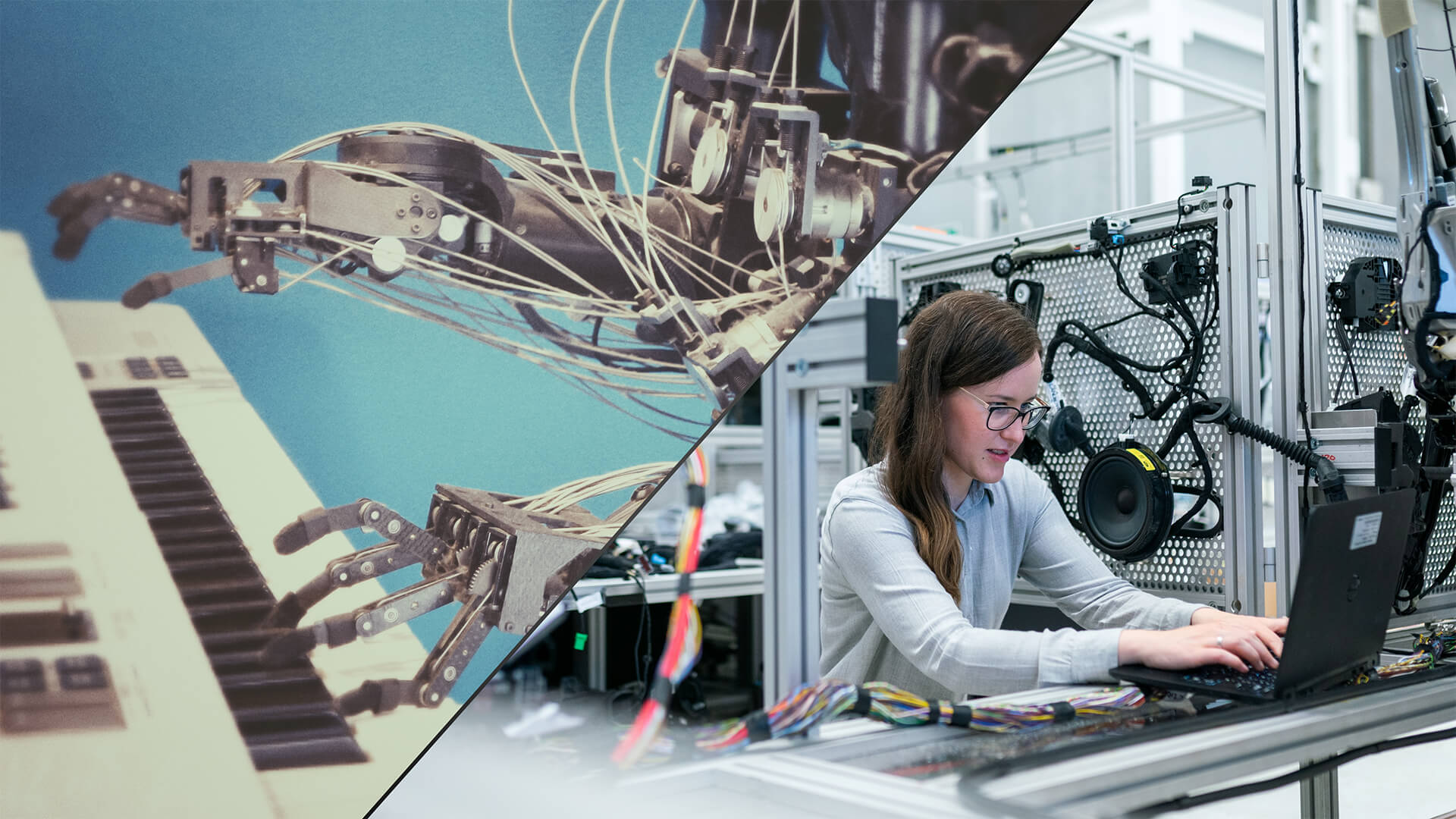
Until now, in my career, I heard so many times the voices of those who fear progress. Each sector has its own Luddites.
Now, in this article, I won't go into details about post-scarcity economies, utopian and dystopian futures, or even how lifelong education can help tackle artifacts like technological unemployment. Those are good topics for a course on lifelong sustainable careers which I intend to create soon.
The sector of creative audio was always full of technological progress that made professionals fear that they'll lose their jobs.
MIDI was feared by session musicians because they believed "they would never work again because one person could imitate all of them using one keyboard". Instead, much more jobs opened for session musicians to record samples for samplers, for musicians that now could work using those samples to conduct orchestras for pre-production before going to the real orchestras to make the final product, and learning music became easier than ever with the help of MIDI tech.
Studios feared that digital audio will close them forever and that everybody will produce music by themselves, yet many experienced studio owners created audio plugins encapsulating their philosophy, made a profit on the side by running e-learning courses, and created digital delivery services that multiplied their production output rate, profits, and clientele.
Even now that the new machine-learning voice synthesizers start to appear on the market, I hear many voice actors fearing that they might lose their jobs, but I can clearly see that the same voice actors can multiply their services by using those tools to create a broader range of voices and offer their services cheaper expanding to customer bases that they could never reach in the past.
My advice is, don't fear the Reaper. The life-death-life cycle is natural. When something dies it brings new life ad infinitum, until the universe gets cold.
When you find out that a tool or technology makes most of your work automatable, then it's time to start searching for the next level where you should get your skills and knowledge. When robots start making music, then musicians should start learning how to use robots. You are already doing that by using a sequencer, moving a fader, or loading a plugin preset. It's just that it's harder when it happens in the middle of your career because it impacts your comfort. Well, life is not comfortable all the time, is it?
When you feel that technological progress starts putting threads on your hands and feet turning you into a puppet, it's time once again to be the puppeteer, push towards progressive thinking and soon you will be on top of things again.
All that glitters is not gold
Choose your clients and projects carefully

As you strive to win over customers, customers should strive to win you over.
In my early days, I started many projects that looked great and my clients had the best of intentions, and the end result was far worse than I could have imagined.
Don't underestimate the power of lies, especially the lies that people first tell themselves. You see, when a client tries to lure you in, as a candidate for a job position or as an outsourced service provider, she or he will enlist all the perks that your involvement in her or his project will grant you.
This is a practice that many clients will use when they want you to lower the prices or even convince you to work for exchange other than monetary profit. More on that on practice number 8.
Another danger you should try to avoid is a mismatch of chemistry between you and the client. Arrange some meetings to discuss business and try to see if you are fit to work together. If you feel that communication is abrasive, or that you have incompatible values, maybe you should think twice about working with that specific client.
Finally, try to get a good idea of the client's planning and resources. When I hear the phrases "time is not a problem" and "money is not an issue", then I really worry. A Greek proverb says "When you hear of many cherries, hold a small basket.", that couldn't be more true.
Treat the bad customer as a naval mine in the sea of business. Avoid them and let them slow down somebody else.
All that glitters is not gold, I love it when clients come to me with a handful of problems and a lot of questions that need research to answer. It means that they've done their job up to the level they could and they come to me because they really need me. Having to solve tough problems is a sign that their project is a serious one and that they don't fear to innovate.
Try to find clients that have the same values as you do, come from a compatible culture, and your chemistry works well. That way you not only ensure positive energy going into your projects but also that when those clients recommend you to other people they know, chances are that those new people will also be compatible with your culture and way of doing business, making everything easier and faster.
Never forget that sometimes you just have to say no because you felt that way, there's nothing wrong with learning to hear the career advisor you hide within you, that little voice that gives you the best advice.
Value your work
Don’t offer it for free, always take something in return

In my long experience as an educator in various fields of creative audio, one thing that never changes is having a former student of mine writing to me, asking me if she or he should accept doing a project for free.
It's a question that can have multiple answers and I will give the top ones here.
First of all, why? Not why do it but why the client asks for that kind of collaboration? Is it before the client doesn't have sufficient funds and only needs your services to finish the project, or because the client wants to produce something without giving any money?
First of all, in the exchange of value, money might be the most common form of conducting business but it's not the only one.
Ask yourself if you have the resources to handle a project without monetary return and also ask if you want/need this project so much that you are ready to sacrifice monetary gain to get the project.
A very important angle of viewing this is to ask the client if the project is for-profit. If the project is for-profit and the client doesn't want to share profit right now, you should ask for a profit return with interest when the project brings profit to the client.
Also, there are many other ways to get paid except money. You could get a percentage of the profit or ask for an exchange of services. For example, if the client knows about web design how about exchanging sound services for a brand new website and e-commerce system?
One time, about 20 years ago, I provided sound design services for a videogame and the lead programmer was a master of AI (Artificial Intelligence) in DSP (Digital Signal Processing). It took me around 4 weeks to finish the project, but in exchange, I got a set of bespoke utilities that allow me to be very productive when searching for sounds in our vast collection of sound libraries that I still use for my own B2B projects and they really shorten the time it takes to do some repetitive work. If you ask me that was a very good deal, not only the tools I got are still not offered commercially on the market but also they were custom-made to my specifications. That project paid pretty well if you ask me.
In the end, you should always value your work and respect your time. One could even argue that we don't fully own our own professional time, it also belongs to the society, the elders and youth that we support through pensions and education, and other ways that you work affect the bigger picture. But even if you don't want to go so deep in an analysis I think that you will agree with me that when you value your work and keep an open mind, there is always a way to gain some kind of profit in exchange for your work.
When it comes to pricing your services, which is a topic for a course and not only a paragraph in a blog post, I would advise you to first and foremost make sure that you get enough money to cover your expenses for an agreeable lifestyle plus any additional profit you need to run your business, stay insured, and have some savings for a rainy day.
A rule of thumb I always give to my students is to calculate a decent price per hour for service-based work and imagine that if they work for lower than that price they in fact get money out of their pocket and put them in their client's pockets. For example, if you calculated that a fair price for your services is 50 EUR per hour and you accept a project at 30 EUR per hour, for every hour you work on that project you take 20 EUR out of your bank and put it in the client's account. Then ask yourself is that specific project or client worth the investment? Has the client acknowledged this investment you make in his or her project? Has the client offered other ways to balance the exchange of value you put?
Not being able to value your work fairly and not succeeding in exchanging your work for that or higher value profit is the quickest way to hate your work and fail your career early on. Be fair with yourself and truthfully with your clients. Negotiations are always about reaching a win-win deal. If a win-win deal cannot be found then you should move on and not lose any more time for yourself or your clients.
Don't miss the forest for the tree
Study other disciplines

This is one of my favorite practices because it's a hobby of mine. You see, computers and music were for me my favorite hobbies while growing up, together with martial arts and fiction literature. My hobbies allowed me to create things in my imagination and in the real world.
Later on, those hobbies helped me to organically develop a professional profile and a network of other nerds that now are my professional connections in different industries. Around 70% of the projects that I did until now came to me by one of those industry connections, and some of my friends actually became my colleagues here in SoundFellas.
Making those connections and keeping them alive as decades pass is not an easy task, but one of the skills that helps me a lot is the ability to communicate with people from other sectors and industries because I know what they do. And how do I know what they do? I study their sectors too.
For the last 20-or-so years, every summer I peak a subject that I want to explore, or as I like to say "learn diagonally", meaning that I just scratch the surface. Then I buy 2-5 books on the subject and try to read them through the next months. That is enough to understand two of the most important things needed to collaborate well with people from other fields. First, understand their day-to-day pains and gains, and second, have a good idea of how they do things.
In the years that have passed, I learned about directing a movie, special and practice visual effects, computer graphics rendering, writing a novel, writing a screenplay, concept art, programming for games, user interface design, digital signal processing, biology, storytelling, game design, entertainment media psychology, marketing, advertising, web design, WordPress, industrial design, film color correction, and the list goes on and on. I'm not bragging here, I'm trying to give you a picture of how easy is to know what the people you collaborate with as partners or colleagues or clients doing on a daily basis. This is very important because it makes communicating very easy and minimizes errors when working together. You also have a better understanding of their vision so you can ensure your convergence towards the same outcome.
Being a specialized master in one thing doesn't mean that you should know how the rest of the world works. By learning about neighboring fields (or even totally unrelated ones, you never know) you make sure that you will be able to apply your specialized skills in those areas with tactical precision and a high level of success. The tree is complete only when perceived together with the forest.
Treat your work as your masterpiece
Do your best, like every time is your last time

My personal philosophy is that whatever I create is either a work of design, a work of art, or a work of knowledge. Many times my creations are a combination of those elements and I bet your work is the same too.
I also have the habit of meditating often on the idea that life ends. I know it's not a nice picture and most people want to keep that image out of their minds. But meditating about it creates a better view of how we value our work and the projects we choose to be a part of.
My advice to you is that you treat every project as if it would be your last, give it all you got, after all, that can only return good things.
The golden rule is to strive for the elegant result and not what might seem to you the perfect result. Perfection is subjective and to projects with many stakeholders what appears perfect to one might appear as over-produced to another. The elegant result is the one that satisfies all the requirements of the design intent and accomplishes not only the creative vision but also the lifetime that was designed to have.
Strive for elegance instead of subjective perfection and you'll thank me later.
Sounding off
Those are the top 10 time-tested practices that granted me a sustainable career in creative audio and it seems to me that as long as I keep practicing them I will be able to continue doing what I love as a way to earn my living, and that is a blessing by itself, don't you agree?
I hope that by posting them online you can add them to your thoughts and will help you create your own set of rules and tactics that fit your personal character and dreams.
Let me know your thoughts on the linked discussion at our forums.
